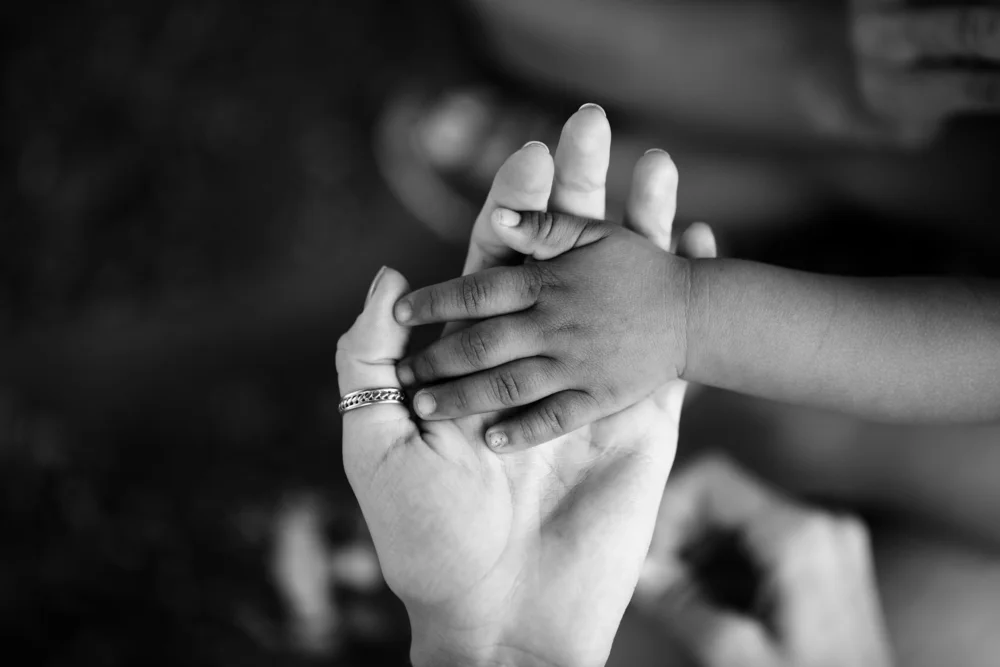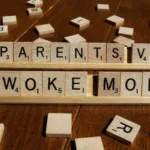
Published March 21, 2024
The Christian story started very simply: a mother delivered her baby, truly God and truly man, amid the squalor of straw and livestock. Such humble beginnings begat a new vision of motherhood that became the archetype for the Church — Holy Mother Church. Embraced by all Christians for centuries, ecclesial motherhood was cast in art, music, poetry, and culture. Even the word for church is feminine in the romance languages. Architecturally, the wide-reaching and iconic arms of Saint Peter’s Square in Rome remind Christians that the Church is meant to be home, nurturer, comforter, and nourisher to us all. She is our mother.
Since Eve, motherhood has been a gift unique to women. Historically, it was understood as a wide category that included the wise grandmother, the religious sister, the mentoring teacher, and the guiding aunt. Holding the needs of others in focus, motherhood encompassed sheltering, nourishing, caring for, and assisting others to grow and live abundantly.
For decades now, that maternal image, as it relates to both women and the Church, has worn thin. Our modern conception of motherhood has narrowed to include only the biological birthing or adoption of children. This is not due to lax or scandal-ridden pastors and clergy, activist bishops, or even a confusing pope. Motherhood has become threadbare because feminism has successfully supplanted the Christian creed and its connection to motherhood with the communist vision of a genderless worker.
Most Western women consider feminism a gentle, benevolent friend who at times has gone astray. Voting, property rights, employment opportunities, education, and public office all speak to the positive goods that most women think feminism has brought women; few understand the commanding power it now has over Western culture and the way in which it has quietly but resolutely made itself the deadliest ideology in human history.
The slide downward began with the rise of socialism in the 1800s, when activists used consciousness raising, a tool of Mao’s Communist China, to stir up women’s emotions of anger and outrage, making them aware of their own oppression. In 1897, the socialist paper Lucifer encouraged readers to “preach the gospel of discontent to women, to mothers, to the prospective mothers of the human race.” Through these efforts, socialism spread one family at a time.
The 1917 Bolshevik Revolution in Russia enshrined female discontent. Private property was eliminated, everyone was sent to work, child raising was collectivized, and abortion was legalized. Women, mimicking men, became model workers under the Soviet system; abortion, the default birth control. The grisly practice became so common that the Soviets had to later encourage women to have children because of plummeting birth rates. One Russian woman decades later spoke of having had eighty abortions.
In the 1920s, the Soviet Communists, desperate to win out over capitalism, found an ally in feminism. Initially, there had been discord between the communists, who viewed feminists as too bourgeois, and the feminists, who viewed the communists as too ideological.
Clara Zetkin, the head of Communist International, believed working-class women were key to the worldwide revolution. She saw the effectiveness of the gospel of discontent among feminists and pushed for more of it. “Female employees, especially intellectuals … are growing rebellious,” Zetkin wrote. “More and more housewives, including bourgeois housewives, are awakening…. We have to utilize the ferment.” Internationally, women continued to flock to communism.
The two groups fused together seamlessly. Feminism — focused on free love, a restructuring of society, and the occult — easily blended with the communist concepts of free love, restructuring society, and atheism. Doctrinaire communists could easily overlook witchcraft, mediums, and seances if it meant they got bourgeois women, especially when both groups sought, above all, the destruction of the nuclear family and the Christian faith.
In 1946, Bella Dodd established the Congress for American Women (CAW) in the United States. Dodd, who later risked her life in 1949 to abandon communism, explained that the CAW was established to influence and control women. First, it aimed to decrease women’s spending in order to starve capitalism; second, it resolved to make women “a reserve force of the revolution because they are more easily moved by emotional appeals.” The CAW attracted many highly influential women, such as the ex-wife of a US senator; academic women like Eleanor Flexner, author of the feminist history Century of Struggle; Susan B. Anthony II (niece of the first); and Betty Friedan. It was dissolved in 1950 by the House Committee for Un-American Activities after being denounced as Soviet propaganda.
Although disbanded, the CAW’s influence did not fade. Betty Friedan latched onto one of Friedrich Engels’ ideas:
[W]e see already that the emancipation of women and their equality with men are impossible and must remain so as long as women are excluded from socially productive work and restricted to housework, which is private. The emancipation of women becomes possible only when women are enabled to take part in production on a large, social scale, and when domestic duties require their attention only to a minor degree.
Friedan was focused on getting women out of private homes and into “productive work.” In 1963, she published The Feminine Mystique, which sold three million copies in the first few years. Its appeal lay in how she used psychology to stir up women’s discontent and tap into their fear of missing out on and envy of the lives men led. She went so far as to call the home a “comfortable concentration camp.” Ironically, for a woman who claimed to hate Hitler, she was promoting the very idea emblazoned on the gates of a real concentration camp: Arbeit macht frei. Work will make you free.
Simone de Beauvoir reemphasized Friedan’s point in the 1970s: “No woman should be authorized to stay at home and raise her children. Society should be different. Women should not have that choice, precisely because if there is such a choice, too many women will make that one.” Friedan, de Beauvoir, and the second-wavers who followed convinced women that husbands are not important and that children are an obstacle to happiness. For the lifestyle this ideology promoted to work, one measure was needed: abortion. As in the Soviet Union, abortion had to be legalized. Workers’ fertility had to be suppressed.
These second-wave concepts reached a new level with the sexual revolution and the neo-Marxist efforts of influential women like Kate Millett and Angela Davis. Using the ideas of the Frankfurt School, they took the Marxist idea that the world is divided between oppressors and oppressed and applied it to women. Men were considered the automatic oppressors simply because they were men, and women were deemed oppressed because they were women. Driven by this newfound claim to victimhood, the gospel of discontent overtook the culture. Women joined consciousness raising groups and infectiously stirred up anger for themselves and their friends. Meanwhile, good men were silenced, and bad men were emboldened.
The gospel of discontent is alive and well today. Women’s marches are no ladies’ tea party; they are saturated with bitter and acrimonious rhetoric and punctuated by vulgar hats. Abortion activists have firebombed churches and pregnancy resource centers. The gentleness and compassion for which women used to be known, as well as their care for the smallest among us, has soured into a general bravado and bombast to “shout abortions” and “smash the patriarchy.”
Christian Women
Christians have largely been unable to deflect the shock waves of the gospel of discontent. Most denominations have caved and fully absorbed the feminist/Marxist agenda. The social justice movement, with its woke trappings, has become the active ethos in most mainline churches, and the results are grim. Our churches are emptying, marriages and religious vocations are evaporating, and birth rates are falling. The family is in tatters. There are now more Wiccans and pagans than Presbyterians, and the “nones” outnumber everyone. Even abortion has gone from something liberals hoped would be “safe, legal, and rare” to being hailed by Christian pastors as a blessing. Christian women are aborting their children at the same rates as secular women, making abortion the greatest cause of death worldwide. Forty-four million children were killed by abortion in 2023.
While the gospel of discontent may feel energizing and enlightening, the one thing it cannot ever provide is real human flourishing. Women today are less happy and more medicated than they were before feminism’s arrival. The desire for motherhood hasn’t been extinguished; it has just been redirected. American homes now have more pets than children as women have become dog moms to fill the gap where children and grandchildren used to be. Try as we might to deny or escape it, women are made to mother.
Christians and conservatives, meanwhile, grapple with how to navigate the new post-Roe waters of abortion, but few are willing to take a hard look at all that women have unwittingly absorbed. Why is it that we have such a hard time defining what a woman is? Why do so many women hold the firm conviction that abortion is a preeminent right? Women have come to believe feminism is a friend because there are injustices it has righted. Whether or not that is true, what feminism has done is redefine injustice to the mere fact of being a woman. In this respect, feminism has been not our friend but a type of cancer that has robbed us of who we really are and replaced it with something ugly, bitter, and foolish.
Christian women, like most other women — from Barbara Walters to Taylor Swift — have bought deeply into this gospel of discontent. The malignant voice that has whispered to women for decades is not the still small voice of Our Savior. The future of the Church will continue this path until Christians realize that motherhood must be restored back to the beautiful, compelling, and dignified icon it was meant to be. The restoration of Christian motherhood (and fatherhood) might not be glamorous, but it offers a true gospel of hope, peace, purpose, wisdom, and contentment, the very essentials for building a well-lived life, here and beyond.
Carrie Gress, Ph.D., is a Fellow at the Ethics and Public Policy Center, where she co-directs EPPC’s Theology of Home Project. She earned her doctorate in philosophy from the Catholic University of America and is the co-editor at the online women’s magazine Theology of Home.











